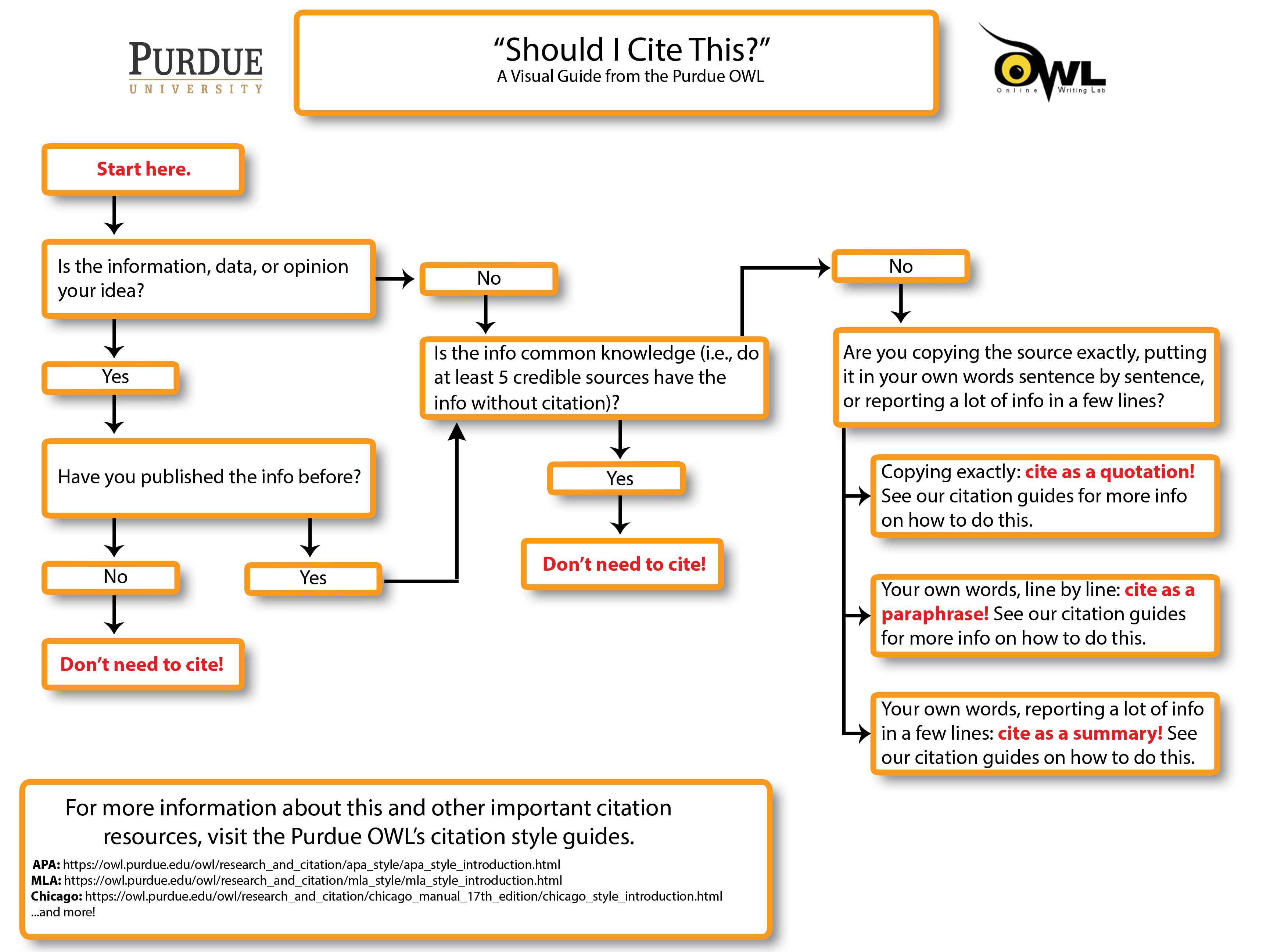Why do we cite information sources?
Scholars seek to make persuasive arguments about material objects, social forces, law, discourse, and other phenomena. In short, academics seek to explain or refine existing explanations of some aspect of the world.
These explanations typically involve one or more truth claims. "The universe is about 14 billion years old," "language structures human thought," and "the death penalty does not effectively deter crime" are all examples of truth claims.
If you find a statement about which you may reasonably ask, how does the author know this?, then it is likely you stumbled on a truth claim.
Scholars seek to defend these truth claims by finding and citing existing evidence. The more authoritative, independent, and numerous the scholar's evidentiary sources, the stronger her argument.
Unless the evidence that the author employs to support her truth claims is "common knowledge" or the author's original finding/opinion/etc., then she must cite the information source.
Knowing when and when not to cite sources can be tricky. The below decision tree is a good place to start.
(TL;DR--when in doubt, cite the information source.)
OWL Should I Cite Decision Tree

Purdue University. 2023, August 25. Purdue OWL "Should I Cite This?" classroom poster. Purdue University Online Writing Lab (OWL). https://owl.purdue.edu/owl/avoiding_plagiarism/should_i_cite_this_poster.html.